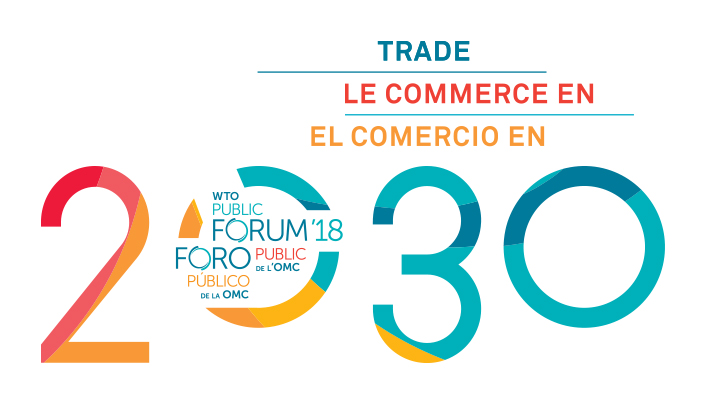Competition issues in the context of technology and internet-based firms
4 Oct 2018 02:00h
Event report
The moderator of the session, Mr Rajeev Kher (Distinguished Fellow, RIS), assessed that developing countries are currently at a disadvantage in the digital economy, due to the lack of capacity and access to technology. He emphasised some of the challenges that countries face with the increasingly important role of platforms; the rising value of data; the difficulty to clearly define concepts which are relevant for competition policy and law, such as the relevant market; and pricing challenges in the context of network externalities.
Ms Rashmi Banga (Senior Economic Affairs Officer & Officer-in-Charge, Unit of Economic Cooperation and Integration among Developing Countries, UNCTAD) spoke of key findings from the ‘Trade and development report 2018: power, platforms and the free trade delusion’. According to her, trade is increasingly concentrated in the hands of big firms, which have become leaders in global value chains (GVCs). Capital share and profit are rising, but labour share is falling, even in developed countries. This will contribute to more social inequality in the future. Network effects will create ‘super platforms,’ strengthened by data that is given to them for free. If there is no competition regulation, the potential benefits for developing countries will be reaped by large platforms in reality. Competition policy has been historically introduced to protect consumers, but currently, it should protect and preserve market structures. Banga recognised that some countries do not have the capacity to economically explore their own data. Against this background, UNCTAD is proposing a ten-point progressive South-South Digital Cooperation for Industrialization: A Regional Integration Agenda. She warned that economic divides could widen in the future, if developing countries do not get access to digital capacity and infrastructure.
Ms Vahini Naidu (Foreign Economic Representative, South African Permanent Mission to the WTO in Geneva) emphasised that the digital economy and e-commerce are highly asymmetrical. The ‘winner takes most’ or ‘winner takes all’ dynamics and network effects benefit first-movers and standard-setters. She mentioned that there are voids in legislation and oversight, sharing insights from the African context. In South Africa, the impact of disruptive technologies, such as over-the-top technologies (OTT), can be felt in sectors like broadcasting, and there is a tendency of ‘replacing’ or ‘displacing’ traditional industries by making them redundant, as the example of Uber shows. She opined that initiatives to regulate tech giants, put in place in the EU for example, are positive, but would be out of reach for smaller African countries. She concluded that the debate at the WTO needs to be refocused on how to promote development.
Mr Ansgar Koene (Senior Research Fellow, Horizon Digital Economy Research Institute at University of Nottingham) addressed the potential that algorithms and machine learning have to influence market behaviour. Algorithms make it hard to identify collusion, for example. Third party sellers use algorithms to set the prices they charge on Amazon.com, which can produce characteristics of undue coordination. Negotiations at the WTO, such as forbidding forced access to the source code, should not negatively hamper measures taken to enhance the transparency of algorithms as a side effect. Koene mentioned various examples of discrimination that reveal historical bias embedded in datasets. He also alerted for the dangers of ‘code reuse’ by programmers. Reuse multiplies the sneaky introduction of bugs and vulnerabilities that can span across different products.
Mr Abhijit Das (Head, Centre for WTO Studies, India) focused on anti-competition and market-distorting practices; using big discounts given by platforms; financial assistance provided by platforms to vendors; and platforms determining some strict conditions to vendors, such as the use specific packaging, as examples. Some practices could be tackled by current competition law, while others would require an update in competition law.
Das mentioned that innovators in India suffer when they refuse to sell their businesses to large tech companies. These companies usually provide start-ups with non-expensive access to data and cloud services, but withdraw their support if start-ups refuse to sell.
Questions were asked from the floor on the role of competition authorities, the ways in which the WTO could tackle digital monopolies and competition, and the possibility to consider some digital resources as ‘public commons’, which could be used by different players, even if they are competitors.
Banga opined that in a scenario of uncertainty, countries should not abide themselves by new rules; they should preserve their policy space and first try to understand the effects of platforms and the digital economy on markets.
Naidu mentioned she was not aware of work that has been done at the WTO on digital competition. Proposals tabled by member states in the context of the plurilateral discussions on e-commerce have not included competition issues.
Koene agreed that there is need for a mapping of the elements that should be considered public utilities in the digital space.
Related topics
Related event

